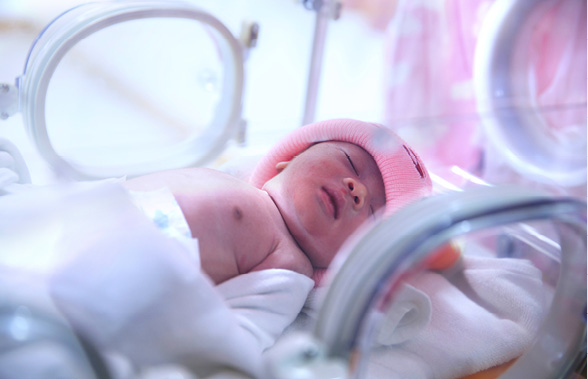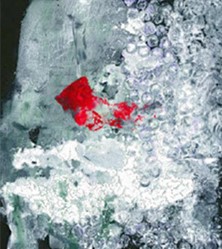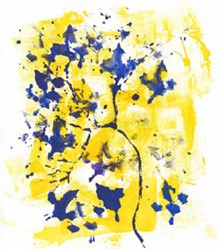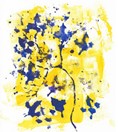Planning for the delivery of your baby who has a serious illness
You may be visiting this site because your baby has received a difficult prenatal diagnosis, or perhaps your newborn baby has complications or a condition so severe that they are not expected to live very long.

You may feel a sense of shock and disbelief. The path for you and your baby may feel uncharted and unreal. You may feel as though your world is falling apart.
As parents, you will embark on a journey many will say they never knew existed. The early decisions you make for your baby may be the first you make as parents.
On this site, you will find many articles written by parents and professionals to help guide you to the support you may need.
Read more
Choosing to continue your pregnancy, embracing however long your baby’s life may be, is an increasingly supported option through an emerging field known as perinatal palliative care or perinatal hospice.
Perinatal palliative care offers families compassionate, quality, end-of-life care when the death of a baby is expected at the beginning of life. This approach to care begins at the time of a baby’s diagnosis. Your healthcare providers will work with you to develop specialized care plans to provide support during pregnancy, for delivery, after your baby’s birth, and through your family’s journey of grief.
"Early prenatal screening tests showed us that something might be wrong with our baby. Our genetics counsellor presented us with all of the options, and compassionately answered all of our questions. We chose to welcome our only son, Josiah, into the world and honour his life for however long it may be. Despite the immense pain of Josiah dying from a rare genetic disorder, I have tremendous peace knowing that Josiah lived his natural life, surrounded by the love of our family. After Josiah died, the hospital invited me back to speak about Perinatal Hospice and our choice to carry our baby to term. A few years later, I wrote a book about Josiah and how his life has forever changed me." – Shari, Mom to Josiah
Ideally, perinatal palliative care includes an interdisciplinary support team that works together with your existing prenatal care team. Professional caregivers may include fetal medicine experts, obstetricians, neonatologists, medical specialists, nurses, midwives, social workers, chaplains, genetic counselors, child-life specialists, family physicians, family and music therapists and hospice professionals (World Health Organization, 2016).
Perinatal palliative care provides medical, spiritual, and emotional support for the whole family (including siblings, grandparents, and important friends) to give meaning to a baby’s too-brief life.
Parents are supported to make decisions for their child’s life while continuing to hope that a diagnosis might be wrong, might not be as significant as anticipated, or that their child might miraculously survive.
The perinatal palliative care approach to care supports the hopes that families have for their babies. At the same time it addresses the serious illness and likely death of the baby. By working with a perinatal palliative care team in preparation for your baby’s birth, you as parents will have time to develop a birth plan together that allows for different possibilities for your child’s life. Sometimes your baby may be healthier than expected at birth, and sometimes conditions may be more severe. Perinatal palliative care allows for a well-thought-out birth plan that can be modified at any time to maximize comfort and provide care consistent with your wishes as a family. Perinatal palliative care is designed to help families make the most of a limited lifetime while providing emotional support, legacy-making opportunities, and spiritual and therapeutic resources. If your baby lives after birth, the conventional palliative care approach will help manage symptoms and ease discomfort.
Your birth plan may include a summary of your wishes for:
- Labour and delivery, including a vaginal birth or caesarean birth, pain relief and comfort measures for the mother, fetal monitoring and which supportive people you would like to have with you
- Your time spent your baby, including spiritual rituals, creating memories, and collecting mementos (e.g., such as hand or footprints, locks of hair)
- Including your baby’s siblings, family, and friends
- Care preferences if your baby lives after birth regarding immediate medical interventions and newborn care
- Care plans for if your baby dies
- Plans for providing after-death care for your baby’s body
“Loving Josiah and welcoming him into this world was one of the most profound and meaningful experiences in my life. His natural life brought unimaginable joy, coupled with a heartache no parent should ever endure.”
With over 300 perinatal palliative care programs worldwide, more and more parents are choosing to enjoy their pregnancy for as long as their baby may live — embracing the brief and meaningful moments of their baby’s life. In areas where a formal program is not available, you can work with your care providers to create a perinatal palliative model of care to support you and your baby.
Read more
Resources
- Continuing your pregnancy when your baby's life is expected to be brief - Perinadal Hospice and Palliative Care
-
- Listing of Perinatal Hospice locations in Canada
- Sample birth plans
- Resources for families and caregivers
- Testimonial videos from families
Rituals
Creating a ritual or ceremony can be a meaningful way to honour your baby. Rituals create space and provide an invitation to reflect on the profound loss of your baby. Rituals can promote healing and help the transition to living without your seriously ill child.
You may choose to follow a cultural tradition or hold a religious ceremony that honours your baby and creates a connection to your spiritual community. You may wish to have a welcoming ritual or a blessing to honour the upcoming birth and/or to honour the baby upon birth.
Naming your baby
The naming of your baby is another ritual. It is a significant part of being a parent. You choose your children’s names for them, and each name is meaningful. Naming your baby who is at risk of dying or who has already died can be a loving way of honouring him or her as a unique person. Naming your baby will allow you to bond and to speak about your baby in a way that will make their presence real to you and to others.
Creating memories
You may wish to plan for meaningful ways to honour your pregnancy and your baby’s brief life.
Before birth, these opportunities may include:
- Watching your baby in a 3D ultrasound with family members present
- Learning your baby’s sex
- Taking professional pregnancy photos
- Reading or singing to your baby
- Celebrating the days of your pregnancy
- Writing a letter to your baby
- Writing a journal or pregnancy blog for yourself or to share with others
- Creating a pregnancy belly mould
- Planning a special trip to a place you will always remember visiting with your baby
"My son, Josiah, lived just one day. In the midst of my sorrow, there was still incredible joy – joy in the pregnancy, joy in feeling every one of his movements, in our photographs, in his birth and existence. I was in love with Josiah before conception, when all my hopes and dreams for my child began."
Once your baby is born, you may wish to collect special mementos, including a lock of your baby’s hair, hand and foot imprints, or moulds of your baby’s hands and feet. For more ideas, see: Legacy and memory making.
In larger hospitals, you may have access to professional hospital photographers, newborn baby photographers or organizations like Now I Lay Me Down To Sleep, an international volunteer organization of bereavement photographers. Many bereaved parents will tell you that keepsake photos taken of their baby with their family members provide treasured memories that help them along their healing journey.
Planning a goodbye for your baby
You may find comfort in letting others know of your baby’s death. Creating a birth/death announcement is a way to honour your baby’s life and share the news of your baby’s birth and death with close friends and family.
Planning a funeral or memorial service for your baby can be a way to cherish and create a memory of your child’s too-brief life as you prepare to say goodbye. See: Planning a funeral or memorial service.
Resources
- Bereavement photography - Now I Lay Me Down To Sleep
Many bereaved parents will tell you that the time they spent with their baby during and after death was profoundly healing and meaningful. This time you spend together with your infant is precious and can last as long as you need it to be. Later in life, many parents are grateful to have spent as much time as possible with their children. The memories you create now will last you a lifetime.
Including siblings, grandparents, family members or special friends
As parents, you can choose who you may wish to see and hold your baby. If your parents, siblings, children, and close friends can be with the baby, however briefly, they may better understand your grief as parents. They may also be more supportive if they have their own memories of your baby, according to the Canadian Paediatric Association.
Suggestions for the moments after your baby has died
Loving and parenting your baby during their short life, and after the death can be a beautiful, deeply meaningful, and healing experience for your family. It may help you to spend time loving and getting to know your baby — to see, touch, hold, sing to, talk to, bathe, and dress your baby and to create loving memories together.
The loss of a pregnancy results in multiple losses: the loss of a baby, and the loss of your anticipated parenthood. Some parents also feel a loss of sense of self and their hopes and dreams for the future. The mother may experience a significant loss of self-esteem because of the inability to rely on her body. For many women, a perinatal loss is a traumatic life experience that can affect them for a long time.
Miscarriage
When a pregnancy ends early, within the first 20 weeks of gestation, it is considered a miscarriage. It is estimated that between 15 to 25 percent of all known pregnancies will end in miscarriage.
Responses to a miscarriage can vary from feeling devastated to having a sense of relief. For some, having a miscarriage is an accepted life event, a pregnancy that somehow was not meant to be. For others, a miscarriage is the loss of a wished-for child, filled with dreams and hopes for parenthood. The attachment to a baby is real and often exists long before conception.
Even in our present day, the topic of miscarriage is often shrouded in silence. Because of this, miscarriage can be an isolating experience for many parents who grieve alone. Despite being a medically common experience, our society struggles to talk about early pregnancy loss.
Because miscarriage happens in the first 19 weeks of pregnancy, you may not have announced it to family and friends. This makes it more difficult to share your grief. Sharing your grief can be healing for you and may inspire others who grieve in silence to do the same. Many parents who have experienced a miscarriage have found meaningful ways to honour their baby.
You may have received the heartbreaking news that your baby has died while inside of you. Stillbirth is defined as the loss of a baby before or during delivery, after 20 weeks of pregnancy. The death of a baby due to stillbirth often comes as a devastating and debilitating shock, but sometimes you may suspect that your baby has died because you no longer feel the baby move or you no longer feel pregnant.
Parents of a stillborn baby have much to grieve: not seeing their baby alive, missing out on their baby’s “first” moments after birth, as well as the opportunity to see and parent their baby through life and death.
Even if your baby passed away before birth, it can be comforting to hold, touch, bathe and dress your baby. You can make hand and foot molds; take photos; create legacies with hand and footprints and perhaps hold a ceremony to honour or bless your baby as you prepare to say goodbye.
Many parents who have experienced stillbirth have found meaningful ways to honour their baby as they begin their journey of emotional and spiritual healing.
One of the most challenging things about losing a baby at or soon after birth is that your body needs to recover from pregnancy and childbirth at the same time as you are dealing with your grief.
You may feel physically exhausted and emotionally shattered. Many bereaved mothers say that their arms literally “ached” for their baby.
While it takes weeks for your body to physically recover from the birth of your baby, the emotional healing after such a profound loss will take a long time. You may find yourself experiencing post-partum mood swings as your hormones adjust to pre-pregnancy levels. This is natural. However, it is important to speak with your doctor as soon as possible if you have any concerns about postpartum-related depression.
What you can do when your milk comes in
If you were breastfeeding your baby or had hoped to do so, coping with your milk supply can be a time filled with mixed emotions.
Some mothers donate their breast milk after the loss of their baby. This can be a way to honour your baby and support other medically fragile infants as you begin the process of grieving.
"Pumping milk. It was something I clung to very tightly during that time because there was so much out of my control and so much uncertainty. But I could make milk and that was kind of a lifeline for me to hold on to—focus on being good at that. I can’t control anything else here, it was a very helpless feeling but being able to provide for her was one of those things that helped with coping with all of it.” – Esther, mother of Elianna and Eli-Grace
Resources
-
- Information on suppressing your milk supply
- Finding a milk bank in your area
Anticipatory grief
You may start grieving for your baby after the diagnosis of a serious illness. Naturally, a life-limiting prenatal diagnosis will bring forth feelings of grief. When death becomes a possible outcome for your child’s life, it is normal that you will begin the process of grieving.
Anticipatory grief has many of the same symptoms, thoughts, emotions, and cultural and social reactions as those you experience after a loved one’s death. With anticipatory grief for your baby, you have a unique challenge of holding onto the hope for your baby’s life while grieving over having to say goodbye, the desire to stay close, and the reality of having to let go — all at the same time. This grief will continue throughout your pregnancy and baby’s life as you mourn all that could and should have been for your family and your child.
A prenatal diagnosis can lead to overwhelming and often complicated emotions. You may find it helpful to channel your grief into creating loving memories that honour your baby’s life. Other parents have found that this helped them cope with their devastating loss.
The journey of grief
Bereaved parents mourn what could and should have been. The loss you have experienced is profound. When an adult dies, you lose what you have known. When a baby dies, you lose what is yet to be known – your hopes, your future, and your dreams.
Mourning all of the special “firsts” that you will not have with your baby, such as the first smile, first steps, first birthday and graduation can cause deep emotional pain.
In perinatal loss, two of life’s most significant events take place at once – life and death. Unfortunately, many people will underestimate the heartache that occurs and expect you to be “over” your loss and back to normal within a few months. Research shows that whether your child is two days, two years, or 22 years, the emotions of grief are similar. Losing a child is one of the most complicated and challenging forms of grief. Sadly, our culture does not teach us well how to deal with the death of a baby.
Your experience of grief will be uniquely your own. But it may help to speak about your baby to a caring person who can listen. It may help to share stories with others who have also endured the loss of a baby.
Counselling and bereaved parent support groups can help you to communicate with your partner, share your feelings around your baby’s birth and death, and support your family through the grief process.
Your experiences as you grieve will forever change you as an individual. The grieving process is a healing process. Grief is an open-ended process of adapting to the loss that lives within you.
Many bereaved parents will tell you that their baby changed the way they viewed the world. The death of your child can foster personal growth and transformation. Parents often report feeling more compassionate, more loving and more grateful in their lives after their loss.
Our children stay alive forever in our hearts, in our thoughts, and in our memories. The love for your child is eternal, a love that transcends this time and place.
Read more
Resources
- Paediatric Advanced Care Team (PACT) - SickKids
Print resources
- Loving Your Baby… A Gentle and Practical Guide to Parenting Through Miscarriage, Stillbirth and Infant Death, 2nd edition (2016) by Shari Morash
- A Gift of Time: Continuing Your Pregnancy When Your Baby’s Life is Expected to Be Brief (2011) by Amy Kuebelbeck and Deborah L. Davis
- Empty Cradle, Broken Heart: Surviving the Death of Your Baby (1996) by Deborah L. Davis
- Waiting with Gabriel: A Story of Cherishing a Baby's Brief Life (2008) by Amy Kuebelbeck
Additional resources
- Birth Planning - Perinatal Hospice and Palliative Care
- Continuing your pregnancy when your baby's life is expected to be brief - Perinadal Hospice and Palliative Care
-
- Listing of Perinatal Hospice locations in Canada
- Sample birth plans
- Resources for families and caregivers
- Testimonial videos from families












